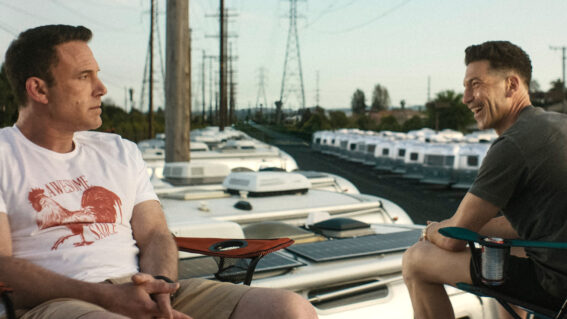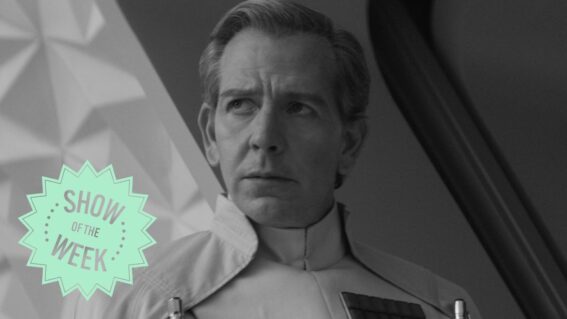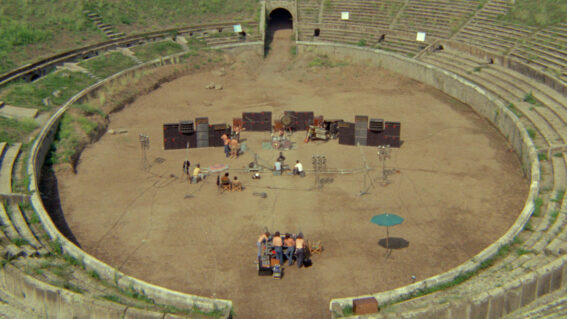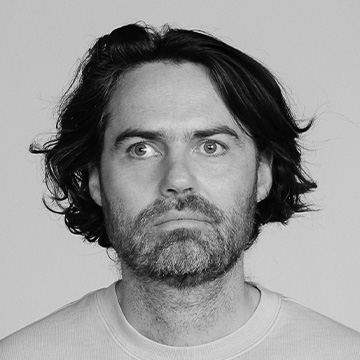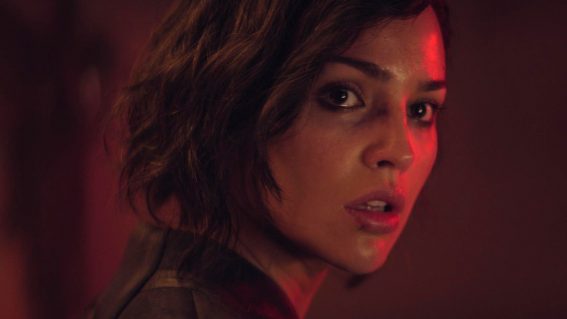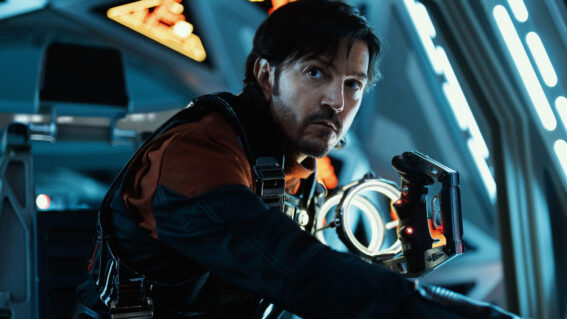Animation gets meta in deeply moving Netflix gem The Missing
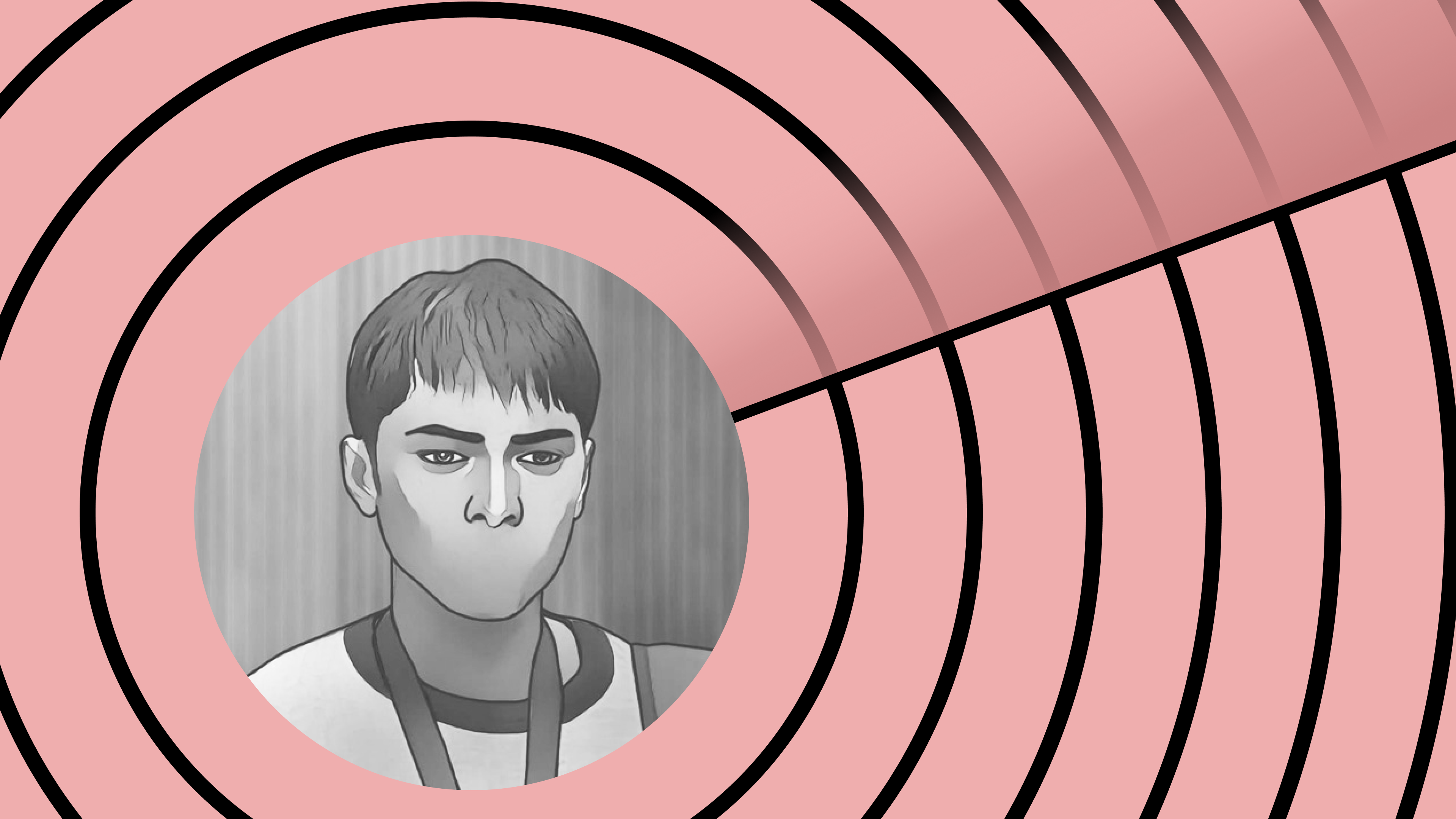
Sick of streaming services recommending you the same kind of stuff? Liam Maguren’s Off the Radar column highlights strange, unique, gimmicky, semi-indescribable titles worthy of your attention. Here, he spotlights deeply moving gem The Missing about an animated animator.
Rotoscope animation has made a quiet comeback over the last couple of years with the likes of cosmic horror anthology The Spine of Night, trippy Prime Video series Undone, and nostalgic space-race heartwarmer Apollo 10½: A Space Age Childhood (Richard Linklater’s third lick at the artform). Diving deeper, indie greats like paranoia sci-fi thriller Absolute Denial and Oscar-nominee My Year of Dicks embrace the uncanny valley qualities of the craft in clever and unique ways.
Advancements in tech and AI tools mean rotoscoping doesn’t have to be as arduous as it once was (i.e. tracing over every frame of reference footage by hand to create the weirdly hyper-real cartoon look). While this means we’ll get bombarded with uninspired uses that simply turn on whatever filter gives them the “rotoscope look,” we’ll also inevitably see filmmakers push the style in hugely inspired ways.
The Missing is one of those gems. Doing the film festival circuit before landing on Netflix earlier this year, the film centres on mute animator Eric—he literally has no mouth—who experiences a life-quaking shake-up after his uncle’s death. This deeply triggering event affects his relationship with his caring mother Rosalinda as well as his colleague Carlo who he’s clearly on flirty terms with. That’s also when the aliens arrive.
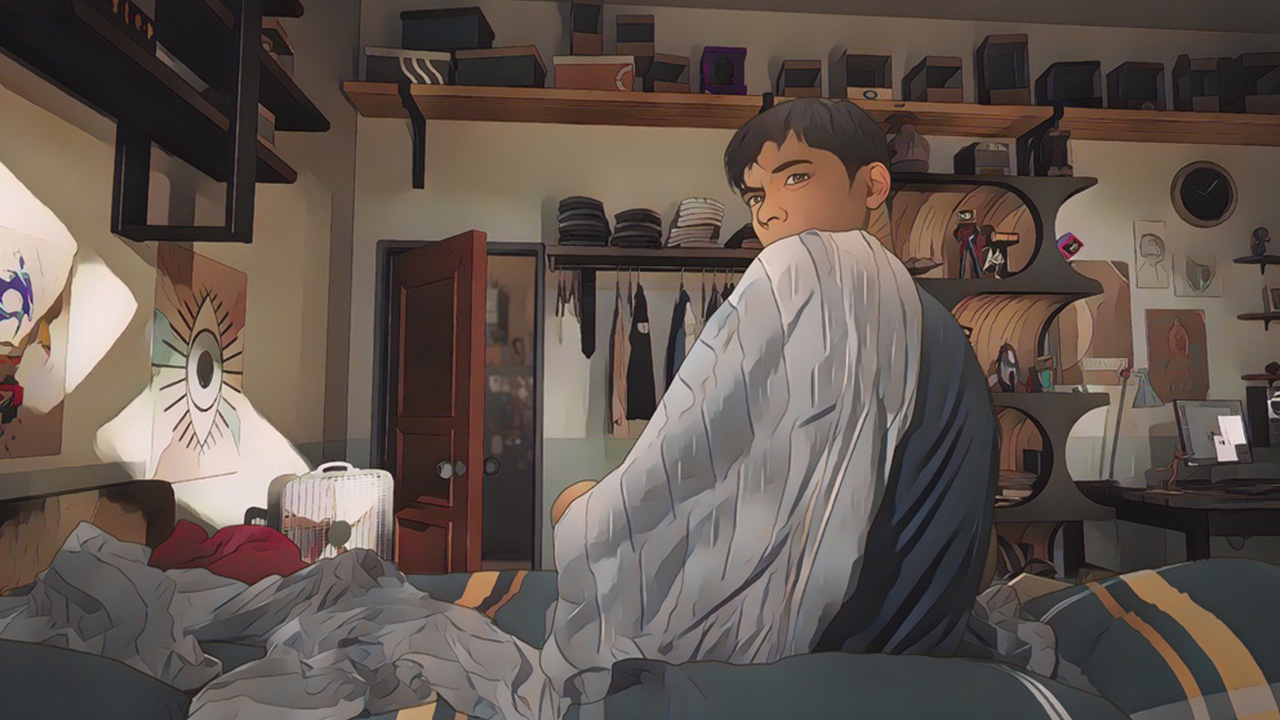
Not that the film ever wants you to take the alien thing seriously, the UFO environments clearly looking off when compared to the real-world locations. The whole thing’s a substitute for a different kind of terrifying experience that’s extremely difficult to explain to anyone.
The third feature from writer-director Carl Joseph Papa and Philippines’ submission for Best International Film at the 2024 Academy Awards, The Missing could also be considered biographical. “I am not putting myself in someone else’s shoes,” Papa explains in the Director’s Notes, “I am wearing my own. Eric’s story is one that’s personal. It is made of dark and repressed memories. Writing the story of Eric and reliving memories was a welcome coping mechanism. At first, I was fuelled by anger because I thought there was nothing else I could do. What’s done is done, after all. But it isn’t over.”
Papa reveals Eric’s dark memories through roughly animated child-like drawings that intentionally feel distorted and somewhat wrong. Choppy framerate, crude character designs, backgrounds that aren’t complete… In an animated animator’s head, this is what repressed memories look like, and it’s eerily effective—often, in a meta creepypasta sort of way.
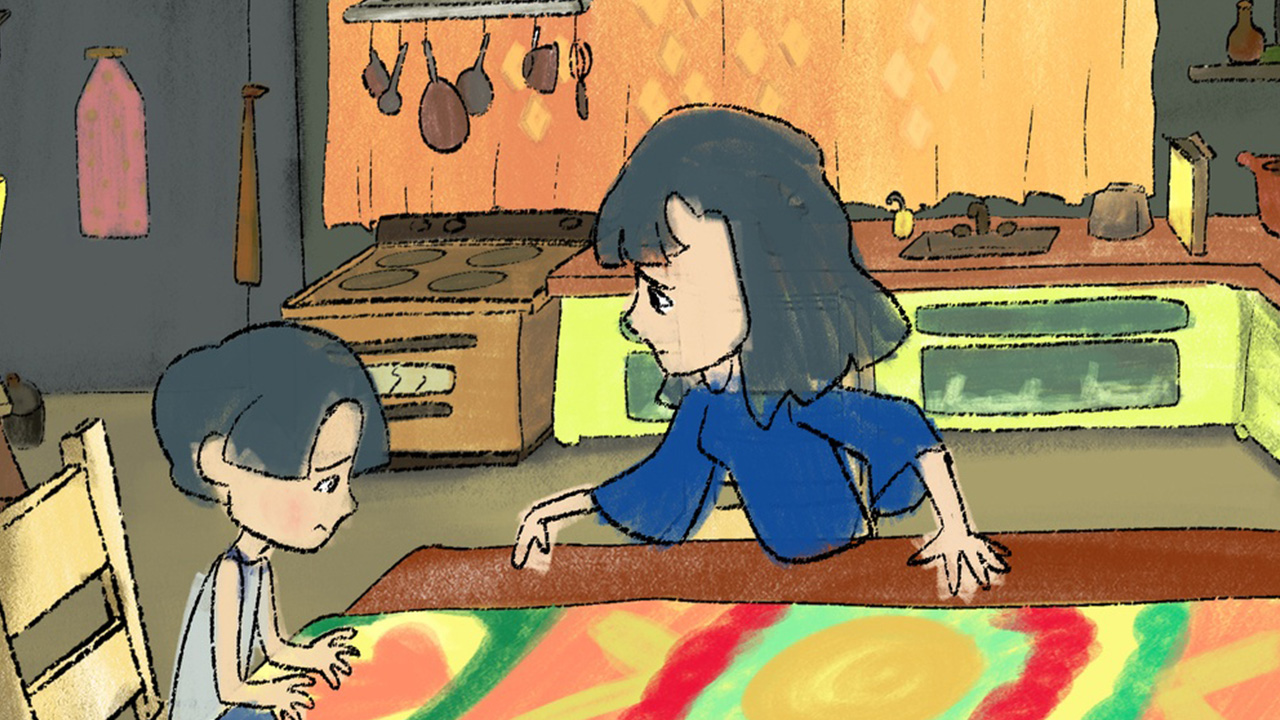
When other “parts” of Eric go missing, the film hits a profound stride. Its message becomes so much clearer without having to directly state it, the character’s physical animated state saying so much about his troubled mentality.
There isn’t a whole lot to Rosalinda, who’s just a very loving and protective mother, or Carol, who’s so sweetly crushing on Eric. But they’re the wholesome characters this story calls for, the type of kind-hearted and caring people ready to listen when the time comes.
As the visuals suggest, Eric’s journey is about finding his voice and gaining the courage to express his internal struggles on his own terms. You get the feeling Papa did the exact same thing making this deeply moving film. His suggestion to others? “Speaking up is never too late. And with this, I hope to encourage others to speak up too.”



